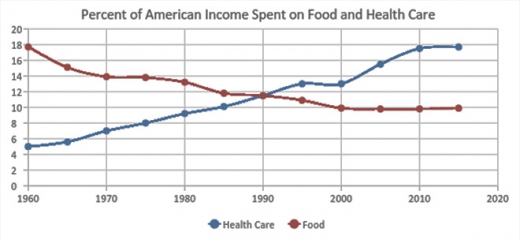
Art of the deal? It is time Tweety, to make the deal of your lifetime.
Tweety can be a hero by choosing to act of the right things. It will be hard to get past the already angry conservative lawmakers he more or less declared war on. Burned bridges?
"How to Build on Obamacare"
Paul Krugman MARCH 27, 2017
https://www.nytimes.com/2017/03/27/opinion/how-to-build-on-obamacare.html
"“Nobody knew that health care could be so complicated.” So declared Donald Trump three weeks before wimping out on his promise to repeal Obamacare. Up next: “Nobody knew that tax reform could be so complicated.” Then, perhaps: “Nobody knew that international trade policy could be so complicated.” And so on."
Common Tweety! EVERYONE knows providing health care and accessing health care is HUGELY complex! Everyone, but you I guess. If you ever read anything except the real estate journal, golfers digest, or watched anything besides Fox News or Saturday Night Live, and spent less time stupidly tweeting your crap to the world, you too would know why health care is SO COMPLEX.
"One important answer would be to spend a bit more money. Obamacare has turned out to be remarkably cheap; the Congressional Budget Office now projects its cost to be about a third lower than it originally expected, around 0.7 percent of G.D.P. In fact, it’s probably too cheap. A report from the nonpartisan Urban Institute argues that the A.C.A. is “essentially underfunded,” and would work much better — in particular, it could offer policies with much lower deductibles — if it provided somewhat more generous subsidies. The report’s recommendations would cost around 0.2 percent of G.D.P.; or to put it another way, would be around half as expensive as the tax cuts for the wealthy Republicans just tried and failed to ram through as part of Trumpcare."
More . . .
"What about the problem of inadequate insurance industry competition? Better subsidies would help enrollments, which in turn would probably bring in more insurers. But just in case, why not revive the idea of a public option — insurance sold directly by the government, for those who choose it? At the very least, there ought to be public plans available in areas no private insurer wants to serve.
There are other more technical things we should do too, like extending reinsurance: compensation for insurers whose risk pool turned out worse than expected. Some analysts also argue that there would be big gains from moving “off-exchange” plans onto the government-administered marketplaces.
So if Mr. Trump really wanted to honor his campaign promises about improving health coverage, if he were willing to face up to the reality that Obamacare is here to stay, there’s a lot he could do, through incremental changes, to make it work better. And he would get plenty of cooperation from Democrats along the way."
Tweety, can you swallow your pride to achieve a BIG success? You would be much praised for "making a deal."
"And the tweeter-in-chief’s initial reaction to health care humiliation was, predictably, vindictive. He blamed Democrats, whom he never consulted, for Trumpcare’s political failure, predicted that “ObamaCare will explode,” and that when it does Democrats will “own it.” Since his own administration is responsible for administering the law, that sounds a lot like a promise to sabotage Americans’ health care and blame other people for the disaster.
The point, however, is that building on Obamacare wouldn’t be hard, and wouldn’t even be all that complicated."
"How Trump Can Fix Health Care"
By BENJAMIN DOMENECHMARCH 21, 2017
https://www.nytimes.com/2017/03/21/opinion/how-trump-can-fix-health-care.html
"President Trump has mostly stayed on the sidelines of the messy policy debates regarding health care reform. But amid the war on Capitol Hill among Republican factions, he could seize the opportunity to provide leadership consistent with his campaign message to disrupt existing health policy.
Instead of trying to satisfy the free-market wing of his party, Mr. Trump could push for a solution that delivers on his populist promises by proposing universal catastrophic coverage, ending the specter of medical bankruptcy for many Americans."
More . . . this is not the best approach since it still fails to match Tweety's promise. I think a "market based" system will always ail to serve the poor, elderly, and weak/sick. Federalize health insurance and most of the pharmacy industry . . . the profit motive for health care is a misnomer; wrong.
"Some on the right may not be comfortable with this plan, given that it would represent a permanent redistributive entitlement. But the House Republican bill also includes a hugely expensive tax credit. This plan would be a straightforward approach to providing insurance against devastating loss that would also render an incredibly complex system of mandates and rules moot, Mr. Hagopian and Professor Goldman argue. That would include ending the requirement that all plans cover pre-existing conditions; the mandate that all individuals buy health insurance; one-size-fits-all “community rating” pricing; and the requirement that insurance companies sell insurance for the same price to everyone regardless of health status.
“Almost all of the costs of these regulations, as well as the negative cost effects of the intrusions into the market that accompany them, would disappear if this plan were in place,” they wrote."
